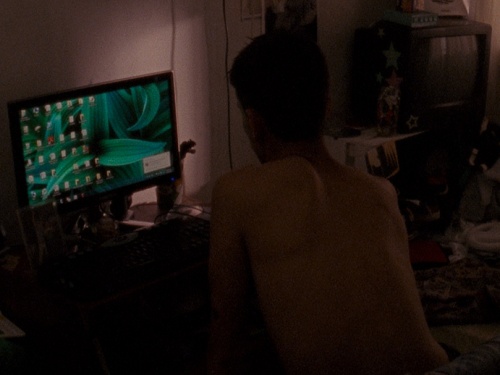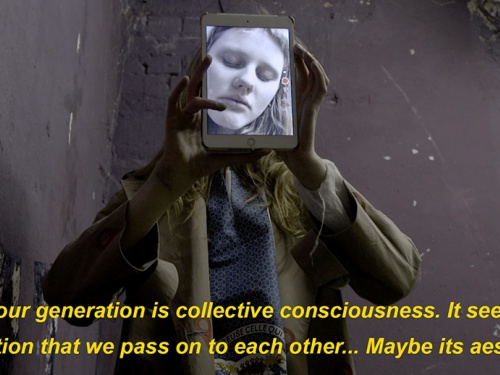Vítor Gonçalves and the Political Power of Portuguese Cinema
Portuguese cinema has a reputation for being uniquely reflective of the country's shifting political and spiritual soul. Independent Cinema Office Deputy Director Simon Ward reflects on this powerful body of work for the ICA Bulletin ahead of the The Invisible Life screening and director Q&A, the first film in twenty-five years by one of Portugal's most influential directors.
Portugal has a population of roughly the size of London. This makes it something of a marvel for cineastes when we consider the list of world-class filmmakers working from this small corner of Europe. This includes Manoel de Oliveira, Raúl Ruiz, Pedro Costa, Miguel Gomes, Paulo Rocha, António Reis and the reason for this article, Vítor Gonçalves.
Looking at the most prominent filmmakers from almost any other country and then over this list of Portuguese directors, something immediately strikes us. Rather than producing commercial cinema in the manner of most European or North American countries, the filmmakers on this list are a peculiarly idiosyncratic bunch of maverick dreamers and visionaries. Not for them are the straightforward tropes of social realism or box-office friendly orthodox genres such as thrillers and romcoms. Instead, we find ourselves looking at a curiously impressionistic cinema which engages a sort of liminal state between people and ideas, between emotion and story, between form and function.
Perhaps most significantly, Portuguese cinema works between the personal and the political, with Gonçalves's The Invisible Life a striking example of this. For me, the film brings to mind Michael Haneke’s Hidden or Lucrecia Martel’s The Headless Woman in its rare ability to match character with metaphor. It reveals as much about what it means to be human as it does about the particular political past of the country and culture from which it sprang.
The strength of Portugal's national cinema derives in part from the closeness of bonds between the filmmakers, each generation assisting each other without a strict hierarchy of age or experience. Vítor Gonçalves, as head of direction at Lisbon Theatre and Film School, has contributed to the careers of many generations of Portuguese filmmakers. This approach was initiated by Gonçalves's own mentor António Reis, whose influence is noted in the multi-generational group of filmmakers known as The School of Reis.
It is no surprise then to find that The Invisible Life is partly a film about a man grappling with the decline of a significant mentor. In the film, we are presented with a tautly-constructed, airless cinematic chamber piece exploring a man’s emotional crisis. Forty-something Hugo finds himself neatly trapped between a past he cannot bear to lose and a future he cannot bear to face. The plaza outside Hugo’s office window is under constant renovation, the very fabric of the city a palimpsest changing around him. It is as if Hugo’s emotional crisis has become a potent metaphor for Portugal as a country. Just as Hugo is only able to grasp his identity in relation to the people in his life—his dying boss, his ex-lover, his dead parents—Portugal’s identity as an ex-colonial power, ex-monarchy and ex-dictatorship feels steeped in stasis.
Hugo finds himself being forced by the people around him to confront his own emotional immutability, just as Portugal itself struggles against the seemingly impossible weight of history to reinvent and reinvigorate itself. We are watching a pitch-perfect, masterly blending of the personal reflecting the political - a kind of dizzying hall of mirrors projecting simultaneously into the past and the future.
Even as a personal expression of mid-life crises and emotional fracture, The Invisible Life is a complex, multi-layered film. Yet knowing the director's biography yields yet another significant layer: Vítor Gonçalves was the son of Vasco Gonçalves, one of the key figures who staged a Marxist military coup in the Carnation Revolution, overthrowing the fascist government. For a time, he was the country's prime minister.
By bringing the 20th century politics of this small country to the foreground we also get some idea of how its people, who lived until relatively recently in a dictatorship of violence, fear and intimidation, have used their artists to explore ideas that are about something more than simple entertainment. All the filmmakers name-checked in this piece have this in common. They are interested in how people function within a landscape of the imagination and and how it is here, in this space of the mind, that freedom can topple, reshape and reinvent any regime the political machinations of power can throw at us.
Vítor Gonçalves made one of the key Portuguese cinema debuts in 1986's A Girl in Summer - a film about a young woman trying to somehow conjure up her own future. Twenty five years later, he has followed up with The Invisible Life. It’s an incredible, thought-provoking and moving achievement. ■
Following the first screening of The Invisible Life on 17 April, there will be a Q&A with director Vítor Gonçalves. There will be regular screenings of the film at the ICA Cinemas.
This article is posted in: Articles, Blog, Film
Tagged with: Vitor Goncalves, Simon Ward, The Invisible Life, Portugal, Film, Cinema, Portuguese Film






